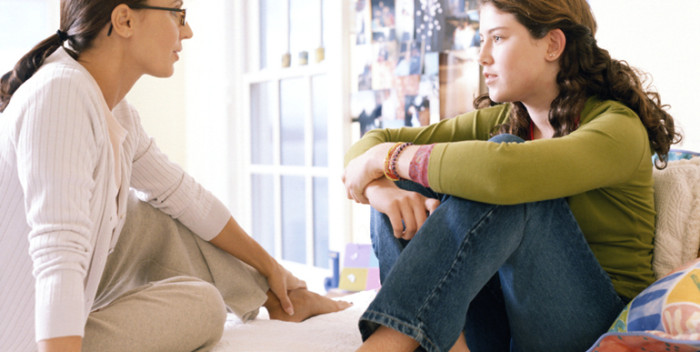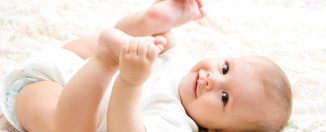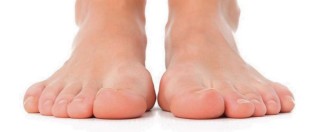Adolescent age: how to recognize and help a child
For a child, adolescence is the most difficult age period. Childhood is over, the period of growing up begins. During these years, children experience mood swings, low self-esteem, vulnerability and sensitivity. They react inadequately to the slightest remarks, require increased attention, understanding and affection .
Content
The years of transition
The transitional age is considered to be the time period of puberty of a teenager, accompanied by active physical development. During this period, the formation of the internal systems of the body is completed, hormones begin to be intensively produced.
From a medical point of view, the transitional age has no clear time boundaries. Problems of psychological maturation usually start at the age of 10 and end at the age of 17. Sometimes it lasts even up to 25 years. At the same time, girls begin to grow up 1-2 years earlier than boys. The physiology and psyche of a child changes over the course of 3-4 years.
Signs of adolescence
During this period, adolescents experience strong emotional stress, move away from their parents. The main signs of the onset of ripening can be considered:
- Decreased self-esteem, self-confidence. Complexes may begin to form.
- Appearance changes, sometimes teenage acne appears, the voice breaks, the growth of the hairline of the body begins.
- Children demand independence, but, having received it, they do not know what to do with it.
- Many comments and advice from adults are accepted with hostility. Quarrels arise over trifles, the child forgets about politeness, becomes rude.
- The active production of hormones leads to emotional instability. Teens often have mood swings from rampant fun to suicidal thoughts.
Signs of a transition period do not appear overnight. Symptoms may get worse over time, some may be more pronounced than others.
Problems of adolescence
Often, parents are not ready for this period. They associate mood swings and behavioral changes with inadequate parenting. Abrupt physiological changes can lead to a decrease in immunity, increased fatigue, heart palpitations, inflammation of the skin. Try to provide adequate nutrition, intake of vitamins. Tell us about proper skin hygiene, choose the right products together.
Relationship problems can arise in several areas.
- With parents. The child begins to reject parental help, advice. The authority of the father and mother is questioned. But he is not ready to make independent decisions and take responsibility for them.
- With your own inner world. Changes in appearance do not always make children happy, there is self-doubt. The child cannot understand what he wants himself, and how to get it.
- With friends and classmates. For a teenager, his status in the classroom and among friends comes to the fore. Often the child is ready for the most extraordinary actions to stand out among his peers.

Parents must set clear boundaries for what is permissible, but communication with the teenager must be respectful and calm. With a trusting relationship, you need to get the child talking, find out what worries him.
Transitional age in girls
In girls, during this period, the work of the thyroid gland and the pituitary gland is activated. The main symptoms are:
- Increased roundness of the thighs.
- Breast growth.
- The onset of menstruation.
- The appearance of the pubic hair and in the armpits of the hairline.
- The active work of the sweat and sebaceous glands provokes the appearance of acne on the face and body, the hair becomes more oily.
The girl turns into a woman, there is a desire to please the boys. The desire to stand out from the crowd can lead to the choice of unusual clothes, a change in hairstyle and hair color, an interest in cosmetics and perfumery. During this period, the attention of the mother is very important.
She should talk about her own experience, but not criticize or scold her daughter. The formation of her own style and taste should take place under her gentle guidance.
Transitional age in boys
The onset of adolescence is accompanied by the rapid growth of the skeleton and muscles. The boy's shoulders become wider, from the age of 10, the penis and testicles begin to increase, hairline appears in the groin. The development of cartilage and muscles in the throat, the growth of ligaments provokes breaking of the voice, the occurrence of sound drops. At the age of 14-16, emissions appear, which are a natural physiological process of ejaculation during sleep.
After 15 years, boys begin to grow a beard and mustache. The hairs are still thin and light, but the guys have a desire to shave like a father. Acne and pimples may appear on the face. From the age of 12, boys grow by about 8-10 cm per year. Growth stops after 20 years.
The increase in physical strength makes guys want to use it. The best way out is playing sports, active lifestyle... But they are not always able to find a way out of energy on their own; parents need help and guidance. If relatives do not participate in the child's life, limiting themselves to providing for primary needs, then there is a risk of self-affirmation at the expense of bad habits and friends. A trusting relationship with his parents will help the boy during this difficult period.
Teens and parents
Adults have already experienced a transitional period in their time, therefore, the feelings and emotions of children should be understandable to them. The main recommendations of psychologists are as follows:
- The child should take part in the discussion of family matters, problems. You do not need to indulge his whims, but you should not completely ignore his desires either.
- Don't expect your teen to follow all of your advice, even reasonable advice. The spirit of rebelliousness makes them do the opposite, even contrary to common sense.

- Do not be offended by curses and unpleasant words that the child speaks during an argument... Negative emotions are the result of hormonal storms.
- Do not discriminate between your children; the rules and rewards should be the same for them.
- Remember that there are no ideal families, everyone goes through difficult times.
- Look for opportunities to share outdoor activities. Support his endeavors in sports.
- Child's room- its territory, where everything remains inviolable for everyone except the owner.
- Do not avoid difficult topics in communication. Answer all the questions of the child as openly as possible, let him feel your readiness to conduct a dialogue and listen to him.
If your son or daughter is looking to grow up, let them feel how difficult it can be to make a decision or be responsible. If possible, transfer to him simple household chores, planning his pocket expenses. 
If something does not work out, do not blame him, but support him with advice. The teenager will grow up and everything will fall into place. He will learn to take responsibility for his actions and decisions. The transition period is a difficult time for children and their parents. And, only by showing wisdom and attentiveness, you can become your child an even closer friend and advisor.





